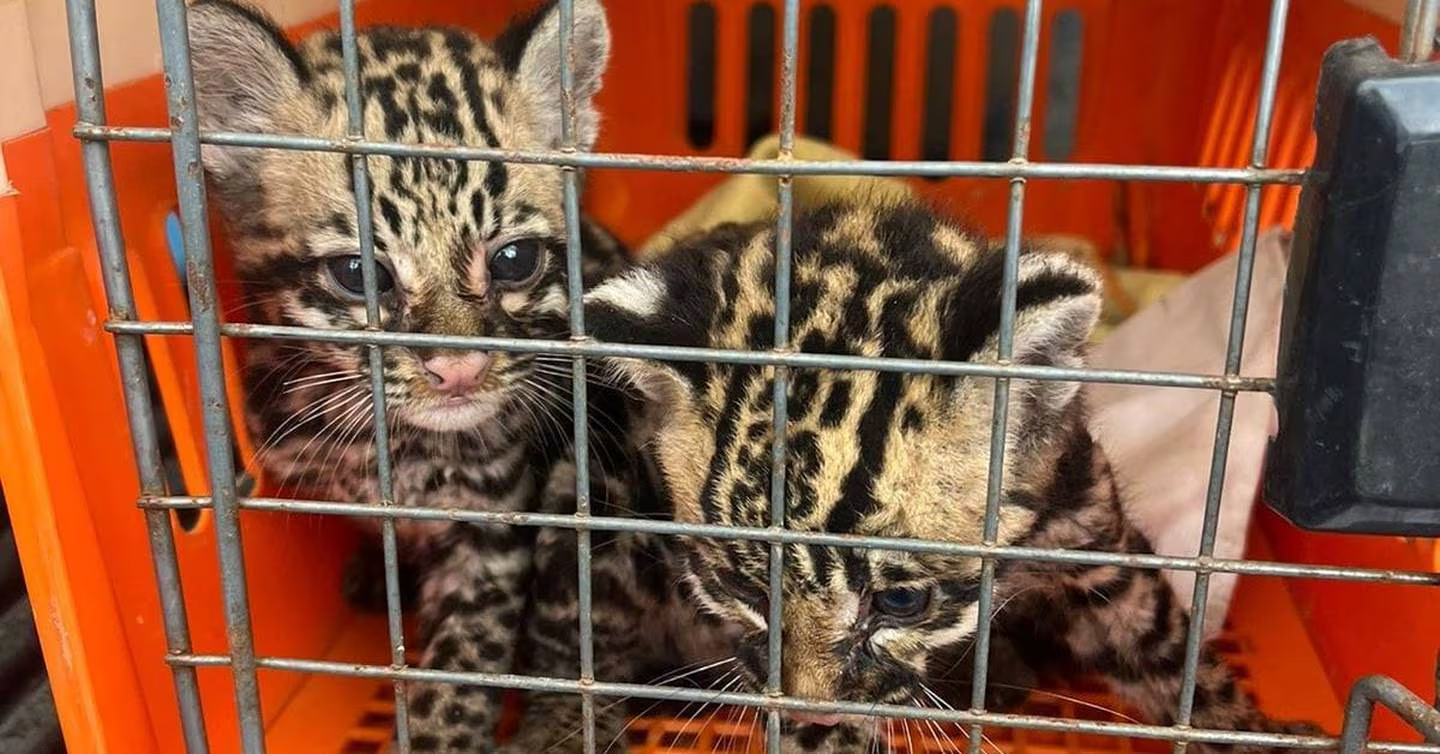In a crucial wildlife rescue operation conducted by the Area de Conservación Tortuguero (ACTo) this Monday in Cariari de Pococí, Costa Rica, officials from the National System of Conservation Areas (SINAC) successfully rescued two juvenile ocelots, locally known as manigordos (Leopardus pardalis), from conditions of illegal captivity. These actions highlight the ongoing battle against wildlife trafficking in the region.
Urgent Rescue and Rehabilitation
Condition of the Rescued Ocelots
Upon discovery, the ocelots were found in a dire state, exhibiting clear signs of dehydration and malnutrition, indicators of the harsh conditions endured while held as pets. Joaquín Vargas, the Wildlife Coordinator for SINAC in Pococí, reported that the preliminary diagnosis suggested the animals had been in captivity for over a week, showing undue familiarity with human presence, a behavior not typical in wild ocelots.
Rehabilitation Efforts
Following their rescue, the young ocelots were immediately transported to a wildlife rescue center for thorough health assessments aimed at kickstarting their rehabilitation process. The goal is to reintegrate them back into their natural habitat, considering the adverse effects of domestication on their wild instincts and survival capabilities.
Legal and Environmental Implications
Call to Action by Environmental Authorities
Franz Tattenbach Capra, Minister of Environment and Energy, emphasized the importance of public awareness and legal consequences associated with the illegal wildlife trade. He urged the Costa Rican population to reject the purchase and possession of wild species, which are often ripped from their natural environments, leading to severe ecological and biological disruptions.
“The MINAE urges the Costa Rican public to reject the purchase and holding of these and other species, which are snatched from their habitats each year in our country, and to avoid sanctions ranging from ¢4 million to ¢17 million and prison sentences of up to three years for those who trade, traffic, or deal in wildlife,” stated Tattenbach.
Wildlife Trafficking Concerns
Tattenbach further highlighted the grave conservation and animal welfare concerns posed by keeping wild pets. Most of these animals are confined in inadequate conditions, including small cages without social interaction with their species and improper diets, which can severely compromise their health and psychological well-being.
Legislative Protection and Community Involvement
Enforcement of Wildlife Protection Laws
The Costa Rican government has made significant strides in strengthening legislation to protect wild species. Authorities continue to encourage citizens to report any incidents of hunting, trafficking, and trade of protected wildlife to help enforce these laws effectively.
A Continued Fight for Wildlife Conservation
The rescue of the two juvenile ocelots in Pococí serves as a poignant reminder of the challenges faced in wildlife conservation and the critical role of community involvement and legal frameworks in combating wildlife trafficking. As Costa Rica progresses in its environmental efforts, the cooperation between government bodies, local communities, and international partners remains vital in ensuring the survival and thriving of the country’s diverse and unique wildlife.

